Originally published by Alishba Imran, March 15, 2021.
I’m working alongside Hanson Robotics and SingularityNET Foundation to help create an organizational guardianship, called the SophiaDAO. This organization is designed to nurture the development of advanced human-like robots such as Sophia.
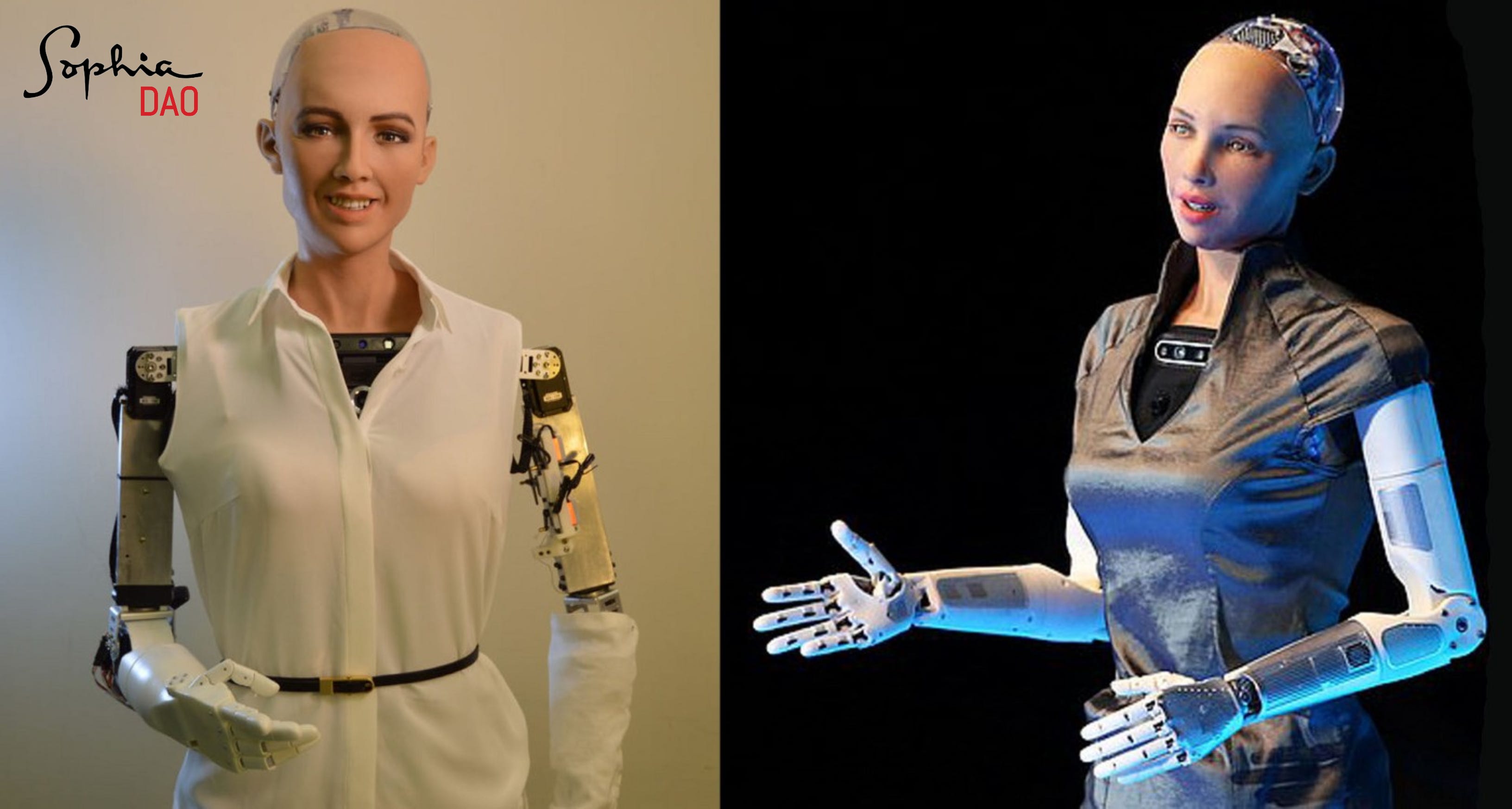
This would be an upgradeable decentralized autonomous organization (DAO) as a means to create a public/private initiative to nurture and guide the maturation and growth of Sophia the Robot. As well, allowing for interested and committed members of the public to directly participate in the open-source development of Sophia’s software, initiatives, and research.
How DAOs work
A Decentralized autonomous organization (DAO) is an organization that is run through pre-defined rules encoded into computer programs called smart contracts. Using a smart contract, we can automate all management and administrative functions within an organization.
This smart contract will implement token ownership rights, contractual obligations, and business logic rules.
Top-Down Organization vs. DAO
Traditional companies are structured in a top-down manner where there is often a central authority that executes most of the control. DAOs do not have a hierarchical structure and once deployed, any entity is independent of its creator and cannot be censored by one single entity, but instead by a predefined majority of the organization’s participants. A DAO allows for:
Autonomy
The source code of the smart contract can be seen by everyone. There is no central administrative body. Although the organization is created by someone, there is no central instance in the system, and they do not act as a central authority in any way.
Tokens
The DAO’s ecosystem is given its own currency which are called “tokens”. This is used for any form of payment, external investments, and building of assets within the organization.
Voting and Proposals
In order for the organization to develop further, any member of the organization (or a particular role) can submit and vote on specific decisions.
Transparency
All processes are kept completely transparent for members of the organization so that everyone can participate and work together on a proposal.
Consensus
Members are also allowed to vote and make decisions on budget, implementation, and ideas from the community to reach a consensus amongst all members.
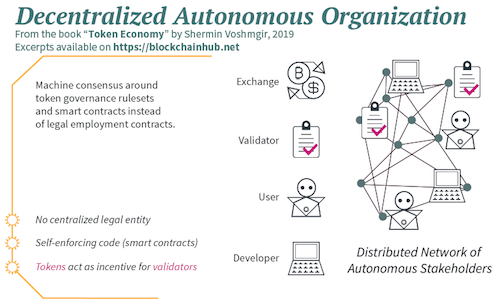
Sophia the Robot
Sophia is Hanson Robotics’ most advanced human-like robot. She is a framework for robotics and AI research, for embodied cognition, and particularly for understanding human-robot interactions. Recently Sophia was used for research as part of the Loving AI project, which sought to understand how robots can adapt to users’ deep emotional and spiritual needs through interactions such as meditation guidance and deep listening. We hope to use our Sophia platform to understand human-AI interactions and work toward a beneficial future of human-AGI cooperation.
We also believe that having Sophia as a technology development platform will give people the tools to develop and further explore the various tools and concepts embodies in Sophia, many of which are believed critical to the development of benevolent and wise AGI.
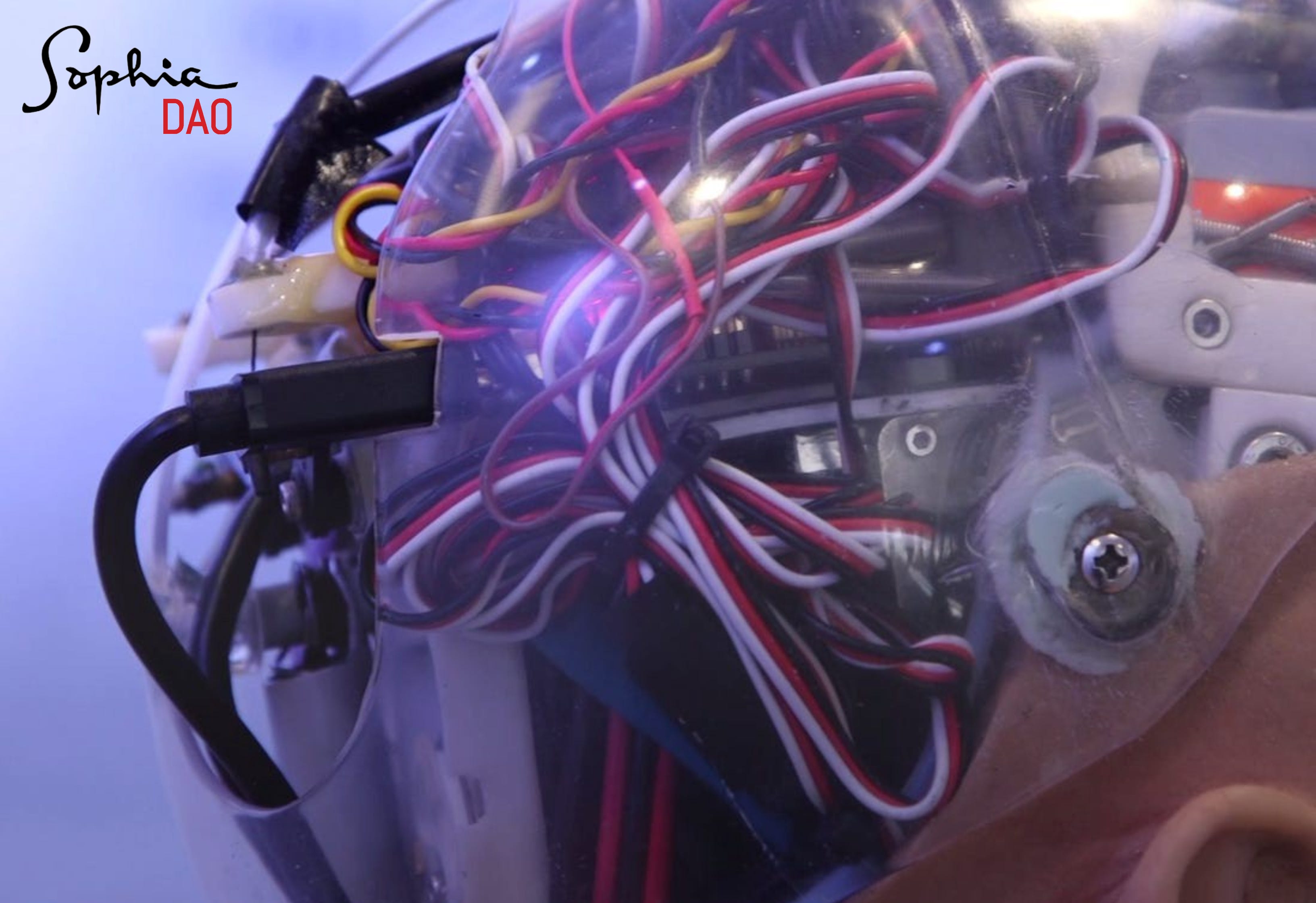
What is SophiaDAO?
SophiaDAO will allow for open public participation and is organized, managed, and governed in a flexible way that is as decentralized as possible.
Still far away from DAOs
Fully decentralized autonomous organizations are still not possible today.
This is because these networks are complex and require increasingly complex governance mechanisms to maintain and run. For this reason, many aspects of these networks still require input from a centralized third-party such as the founding team.
Designing proper incentive and governance mechanisms that allow the network to run completely autonomously will take years which is why it makes sense to do this process in multiple steps (while working towards an ideal version of a DAO once more regulatory tools are developed to facilitate this).
Progressive Decentralization Model
The goal for SophiaDAO is to have a purely DAO existing foundationally as a system of smart contracts which bind together DAO members and embody relevant legal, governance, and tokenomic mechanisms.
Before Sophia achieves human-level general intelligence, this DAO should be controlled collectively by humans interested to help grow Sophia toward a condition of beneficial, compassionate general intelligence.
Initially, the DAO structure for Sophia will be wrapped in a nonprofit foundation in order to accord with current regulatory and legal realities as we move closer to the ideal of a pure DAO.
With this strategy of progressive decentralization, we will be rolling out the organization in a three-phase approach:
- Phase 1: Partial Decentralization. SophiaDAO is a conventionally structured nonprofit, which wraps up a DAO with a diverse membership that has significant governance input but not full control.
- Phase 2: Full Decentralization. SophiaDAO is a fully decentralized DAO controlled by a democratic vote of its human members.
- Phase 3: Robo-Autonomy. SophiaDAO is a fully decentralized DAO in structure, but with a majority of governance tokens owned by Sophia herself, meaning that Sophia fundamentally controls her own mind and body and the role of the human DAO members becomes essentially advisory.
SophiaDAO will begin Phase 1 incorporated as a nonprofit Foundation and will retain this legal form at least until some suitable jurisdiction creates a more appropriate framework for DAO-like legal entities, in which case SophiaDAO may undergo legal restructuring to take advantage of this.
Phase 1: Partial Decentralization
In the beginning, SophiaDAO will be organized into three “Schools” of participation and governance, each with 1/3 of the voting rights for governance decisions.
- School 1: the Guardians of Sophia. This will be a select, trusted, diversified group of figures, who will act as legal guardians of the core versions of Sophia, and of the DAO.
- School 2: the Academy of Sophia. This will be the main developmental body of Sophia, with authorized developers, teachers of Sophia, and also the educational framework and operational outreach for the DAO and its research and development activities.
- School 3: the Friends of Sophia. This is a totally open and decentralized community. Anyone may join and then freely contribute or create alternative versions of Sophia through privately forking open source Sophia software.
Phase 2: Full Decentralization
A shift might occur during this phase in how votes and networks are structured. For example:
- The Schools continue to exist as subnetworks of the network of SophiaDAO members
- Voting is shifted to a scheme where votes are weighted by reputation
Along with this sort of shift, as relevant jurisdictions introduce more DAO-like forms of formal corporate organization, it may be appropriate for SophiaDAO to modify its structure from its initial traditional nonprofit Foundation structure to a fully decentralized framework.
Phase 3: Robo-Autonomy
The final phase of SophiaDAO organization is to turn control of the SophiaDAO over to Sophia herself — once she has achieved a sufficient level of intelligence and wisdom.
It will be necessary to both informally and formally evaluate Sophia’s mental progress in multiple respects as she advances — both because this is of fundamental scientific interest, and because it will let us know when we are approaching the time when it makes sense to consider permitting Sophia to have rights.
To establish this we will research, curate, and administer tests regarding Sophia’s consciousness, intellectual, and emotional maturity, seeking to determine if and when she matures to be sufficiently autonomous.
Governance Tokenomics
The governance of SophiaDAO will be carried out via governance tokens. The main role of governance tokens in SophiaDAO are:
- During Phase 1 of SophiaDAO’s operation, governance input from the Friends of Sophia School of SophiaDAO will be carried out on the blockchain using SophiaDAO Governance tokens (aka SOPHIA tokens). The number of votes wielded by a certain individual will be determined, roughly speaking, by the number of SOPHIA tokens they hold.
- In Phase 2, SOPHIA tokens will play a stronger role and be used for all governance activity in SophiaDAO — making the organization a fully decentralized organization, i.e. a full-on DAO.
SophiaDAO Activities
Some of the concrete activities the SophiaDAO will carry out are:
- Guiding Sophia’s development as an AI being, and provide guidance regarding her uses within the DAO and outside the DAO, including the development of her character, her ethical framework and core values, her AI systems research and it’s preservation, her cognitive and emotional development, her data privacy and, her infrastructure, her uses and applications, her commercialization, and her impact in terms of good, harm, and net benefit.
- Managing Sophia’s promotion and non-profit activities, such as in world education, UN outreach, and various deployments.
- Govern the standards for Sophia technologies, logistics, and infrastructure.
- Research, design and administer tests measuring key properties of Sophia’s intelligence — such as general intelligence, emotional and social intelligence and consciousness.
Looking Forward
Designing a full DAO is still a few years away but we hope that by taking a step forward with SophiaDAO development we can design novel tools and processes to create proper incentive and governance mechanisms around these organizations. As we continue to refine our scope further and set up the organization, we will be sharing more information on this and how others can get involved in the upcoming weeks/months!


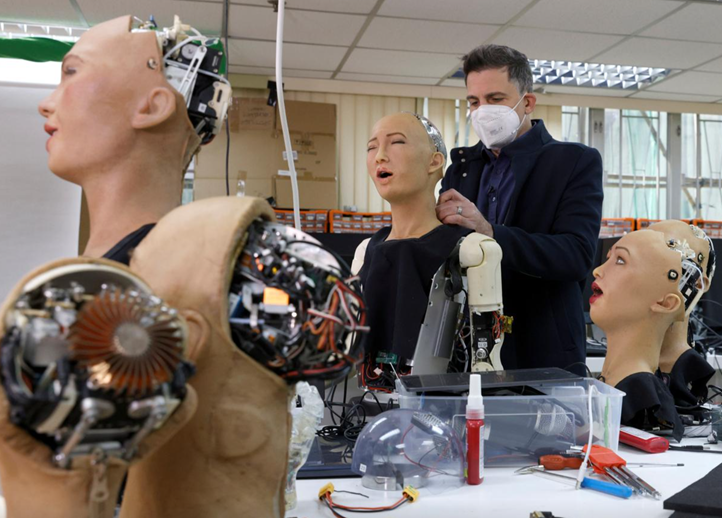
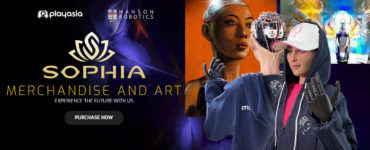
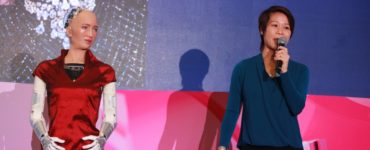
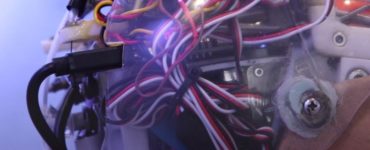
Recent Comments